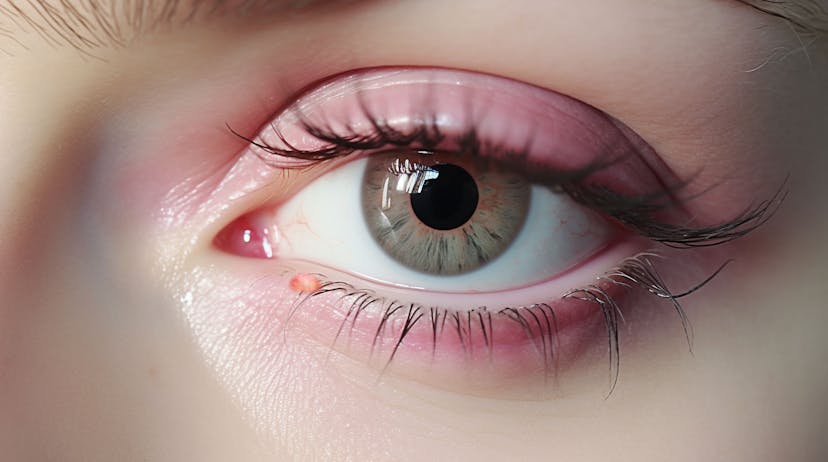
Dry eye syndrome occurs when the eyes fail to produce enough tears or the tears evaporate too quickly, leading to discomfort, irritation, and blurred vision. Traditional treatments include artificial tears, medications, and lifestyle changes, but for some patients, these approaches may not provide sufficient relief.
Laser eye surgery offers a cutting-edge solution by addressing the underlying causes of dry eye syndrome. Technologies such as Intense Pulsed Light (IPL) therapy and advanced laser procedures work to restore the natural tear film balance by targeting blocked oil glands, reducing inflammation, and improving overall eye surface health. These innovative treatments not only alleviate symptoms but also promote long-term comfort and clarity.
Does Laser Eye Surgery for Dry Eye Syndrome Work Indefinitely?
While laser eye surgery can provide significant and long-lasting relief for dry eye syndrome, the results are not always permanent. Factors such as aging, hormonal changes, environmental conditions, and underlying health issues can affect tear production and eye health over time.
However, many patients experience extended periods of relief, with some needing only occasional follow-up treatments or maintenance. Advanced technologies like IPL or LipiFlow often target the root causes, such as meibomian gland dysfunction, which can yield durable improvements.
What Is the Success Rate of Laser Eye Surgery for Dry Eye Syndrome?
The success rate for laser treatments, like IPL or LipiFlow, is generally high. Our studies at My-iClinic show that:
- 70-90% of patients report significant symptom relief and improved tear quality.
- Many experience long-lasting effects, though periodic maintenance sessions may be needed.
Success often depends on the severity of dry eye and adherence to a personalised treatment plan.

Are There Any Complications with Laser Eye Surgery for Dry Eye Syndrome?
As with any medical procedure, laser eye surgery for dry eye syndrome carries some risks, though complications are rare. Potential side effects include:
- Temporary Redness or Swelling: Common after IPL treatments but usually resolves quickly.
- Increased Sensitivity: Some patients may experience heightened sensitivity to light.
- Incomplete Relief: In cases of severe dry eye, multiple sessions or additional treatments may be necessary.
- Discomfort or Irritation: Mild irritation may occur post-treatment but typically subsides within days.
At My-iClinic we have experienced specialist and private aftercare to significantly reduces the risk of any complications.

What Causes Dry Eye Syndrome?
Dry eye syndrome occurs when the eyes don’t produce enough tears or when the tears evaporate too quickly. Common causes include:
- Meibomian Gland Dysfunction (MGD): Blocked oil glands in the eyelids reduce tear stability.
- Aging: Tear production naturally decreases with age.
- Hormonal Changes: Menopause or hormonal imbalances can impact tear production.
- Screen Time: Prolonged use of screens reduces blink rates, leading to faster tear evaporation.
- Environmental Factors: Wind, dry climates, and exposure to smoke or air conditioning.
- Medications: Antihistamines, antidepressants, and certain blood pressure drugs can reduce tear production.
- Health Conditions: Autoimmune diseases like Sjögren’s syndrome, rheumatoid arthritis, or diabetes.
- Contact Lenses: Long-term use can irritate the eye surface.
My-iClinic’s Top Questions About Laser Eye Surgery for Dry Eye Syndrome
As we see a wide range of patients across London and the UK, our surgeons get asked many concerning questions before and after the operation. We have put together our top 7 answers to help put your mind at ease.
1. Who Is a Good Candidate for Laser Eye Surgery for Dry Eye Syndrome?
Good candidates typically include patients with moderate to severe dry eye symptoms caused by issues like MGD or tear evaporation. A thorough evaluation by a specialist determines suitability based on eye health and medical history.
2. How Long Does the Procedure Take, and What Is the Recovery Time?
Laser treatments for dry eye syndrome are quick, often lasting 15-30 minutes. Recovery is usually minimal, with most patients resuming normal activities within a day, though mild redness or irritation may persist briefly.
3. What Technologies Are Used in Laser Treatments for Dry Eye?
Common technologies include Intense Pulsed Light (IPL) and LipiFlow. IPL targets blocked oil glands and reduces inflammation, while LipiFlow uses heat and gentle pressure to unclog meibomian glands. Both promote healthier tear production.
4. Is the Treatment Painful?
Laser treatments are generally well-tolerated. Patients may feel mild warmth or a tingling sensation during the procedure, but discomfort is minimal. Localised irritation, if any, resolves quickly.
5. How Much Does Laser Eye Surgery for Dry Eye Cost?
Costs vary depending on the technology used, and severity of the condition. On average, treatments range from £500 to £2,000. My-iClinic offers payment plans to make the procedure more accessible.
6. Can Laser Eye Surgery Be Combined with Other Treatments?
Yes, laser treatments often complement traditional methods like artificial tears, prescription medications, or dietary supplements. Combining therapies can maximise relief and improve long-term outcomes.
7. Are There Any Lifestyle Changes Needed After Treatment?
To maintain results, patients should stay hydrated, use protective eyewear in harsh environments, reduce screen time, and follow any prescribed eye care routines. Regular check-ups help ensure lasting comfort and clarity.
Next Steps
If you’re struggling with dry eye syndrome and want to explore whether laser eye surgery is right for you, My-iClinic is here to help. Schedule a consultation with our experienced team to discuss your symptoms, treatment options, and personalised care plan. Contact us today to take the first step toward long-lasting relief and healthier eyes.
Find out more by Speaking to our team









